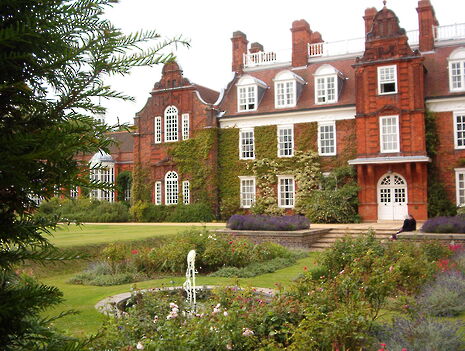£600k grant to fight cancer
Newnham scientist wins grant to research how cancer can progress into non-cancerous cells

A leading Cambridge University scientist has been awarded a £600,000 fellowship grant to continue her pioneering research into breast cancer and the secondary tumours it causes.
Dr Cristina Branco-Price, who is currently the Director of Studies for Natural Sciences at Newnham College, is to receive the six-figure prize in order to help improve breast cancer survival rates.
The five-year scientific fellowship grant from the Breast Cancer Campaign was given with the aim of aiding new research into how benign cells can help – or hinder – the spread of breast cancer from one organ to another.
Dr Branco-Price believes that “with so much effort dedicated to prevention, diagnosis and therapy targeted at cancer cells, there is a great void in research focused on prevention and treatment of distant metastases: when cells from the original tumour move to other organs, which is ultimately the cause of cancer-associated morbidity and mortality”.
“I will look at the organic nature of tumours, as well as on the responses of the host tissues, distant organs where breast cancer cells can move to generate secondary tumours,” said Dr Branco-Price.
Nearly 500 women are diagnosed with breast cancer each year in Cambridgeshire alone, with around 100 of those diagnosed due to cancerous cells spreading to other parts of the body.
Therefore, work into how these cells are spread, causing so-called ‘secondary cancers’, is a vital research contribution in the ongoing fight against cancer.
Katherine Woods, the research communications manager at the charity Breast Cancer Campaign, is hopeful about the project.
“Dr Branco-Price’s ground-breaking fellowship project will give us a greater understanding of how non-cancer cells can influence [the spread of cancer], which could eventually lead to new treatments that could slow or even prevent breast cancer from spreading.”
“This would improve the chances of survival for thousands of people living with the disease, bringing us closer to our ambition that by 2020, 25 per cent fewer people will develop secondary breast cancer.”
 News / Reform candidate retracts claim of being Cambridge alum 26 January 2026
News / Reform candidate retracts claim of being Cambridge alum 26 January 2026 Interviews / Lord Leggatt on becoming a Supreme Court Justice21 January 2026
Interviews / Lord Leggatt on becoming a Supreme Court Justice21 January 2026 News / Report suggests Cambridge the hardest place to get a first in the country23 January 2026
News / Report suggests Cambridge the hardest place to get a first in the country23 January 2026 Features / Are you more yourself at Cambridge or away from it? 27 January 2026
Features / Are you more yourself at Cambridge or away from it? 27 January 2026 Comment / How Cambridge Made Me Lose My Faith26 January 2026
Comment / How Cambridge Made Me Lose My Faith26 January 2026









